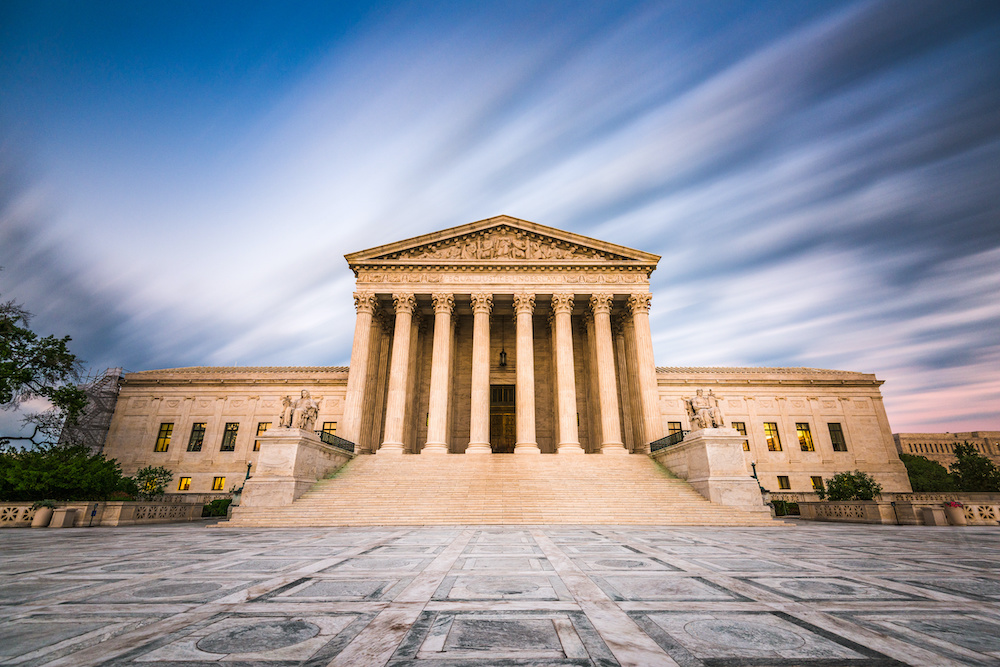
- Details
- By Chez Oxendine
- Policy and Law
The Supreme Court declined to hear a case brought by a Native American advocacy group aiming to block a copper mine’s development on culturally significant land.
The court announced yesterday that it would not hear an appeal by Apache Stronghold, a coalition of the San Carlos Apache Tribe and conservation advocates. According to the docket announcement, Justice Samuel Alito did not weigh in on the decision to deny the appeal, while Justices Neil Gorsuch and Clarence Thomas dissented from the decision.
The appeal challenged a March 2024 ruling by the U.S. Court of Appeals for the 9th Circuit that would approve the sale of a federal parcel in Arizona to developers Rio Tinto and BHP, who plan to build a 2-mile wide, 1,000-foot deep mine on the site. The land sale was first signed into law as the Southeastern Arizona Land Exchange and Conservation Act under President Barack Obama in 2014. The transfer, once complete, will grant access to roughly 40 billion pounds of copper beneath the earth - enough to supply a quarter of the U.S. demand, according to a 2024 Reuters report.
The area, called Oak Flat, is considered by the San Carlos Apache Tribe to be crucial for the tribe’s religious rituals. However, the 9th Circuit ruling - which, in the absence of a Supreme Court hearing, will now stand - found 6-5 that the sale of the site would not be a “substantial burden” on the tribe’s religious practices, since they would not be “forced to stop worshiping,” according to the Reuters report.
“For centuries, Western Apaches have worshiped at Chi’chil Bildagoteel, or Oak Flat. They consider the site a ‘sacred and direct corridor to the Creator,’” Gorsuch wrote in a 17-page dissenting opinion. “Now the government and a mining conglomerate want to turn Oak Flat into a massive hole in the ground … faced with the government’s plan to destroy an ancient site of tribal worship, we owe the Apaches no less.”
Apache Stronghold vowed to launch more efforts to block the mine’s development in a press release issued by the nonprofit legal counsel The Becket Fund for Religious Liberty. Apache Stronghold representative Dr. Wendsler Nosie Sr., a former chairman for the San Carlos Apache Tribe, said the group “will never stop fighting.”
“Nothing will deter us from protecting Oak Flat from destruction,” Nosie said in a statement. “While this decision is a heavy blow, our struggle is far from over. We urge Congress to take decisive action to stop this injustice while we press forward in the courts.”
The mine was paused by the Biden administration in 2021 pending publication of an environmental review required by the land transfer law. The review was conducted throughout Biden’s tenure before being revived by President Donald Trump, whose administration has pledged to publish the review and clear the way for the mine’s development.
Religious freedom vs. federal land rights
Apache Stronghold launched its lawsuit in 2021, alleging that its First Amendment rights to religious freedom would be violated by the destruction of Oak Flat. The group pointed to the Religious Freedom Restoration Act of 1993, which is meant to ensure that religious practices — Native American practices among them — are not infringed upon by acts of government.
The federal government argued that prior legal precedent, such as Lyng v. Northwest Indian Cemetery Protective Association, indicated public land transfers did not qualify as imposing a “substantial burden.” A slim majority of the circuit court agreed with that opinion, as well as the argument that land transfers were not designed to coerce or discriminate against tribes.
Dissenting judges in that case, according to the ruling, argued that disruption of access to the sacred site should be subject to a broader reading of the Religious Freedom Restoration Act. Gorsuch echoed that sentiment in his opinion.
“The Apaches tell us, without contradiction, that the destruction of Oak Flat will prevent them from conducting religious exercises that cannot take place anywhere else,” Gorsuch wrote. “While this Court enjoys the power to choose which cases it will hear, its decision to shuffle this case off our docket without a full airing is a grievous mistake—one with consequences that threaten to reverberate for generations.”
